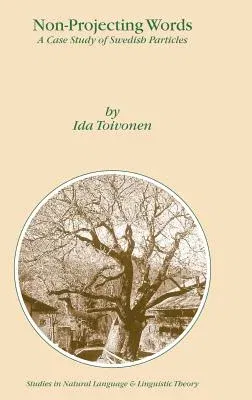I Toivonen
(Author)Non-Projecting Words: A Case Study of Swedish Particles (2003)Hardcover - 2003, 30 September 2003

Qty
1
Turbo
Ships in 2 - 3 days
In Stock
Free Delivery
Cash on Delivery
15 Days
Free Returns
Secure Checkout

Part of Series
Studies in Natural Language and Linguistic Theory
Part of Series
Studies in Natural Language and Linguistic Theory Studies in
Print Length
237 pages
Language
English
Publisher
Springer
Date Published
30 Sep 2003
ISBN-10
1402015313
ISBN-13
9781402015311
Description
Product Details
Author:
Book Edition:
2003
Book Format:
Hardcover
Country of Origin:
US
Date Published:
30 September 2003
Dimensions:
25.3 x
16 x
1.8 cm
ISBN-10:
1402015313
ISBN-13:
9781402015311
Language:
English
Location:
Dordrecht
Pages:
237
Publisher:
Series:
Weight:
539.77 gm